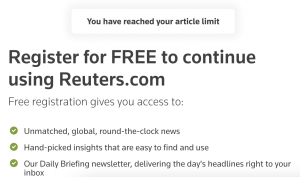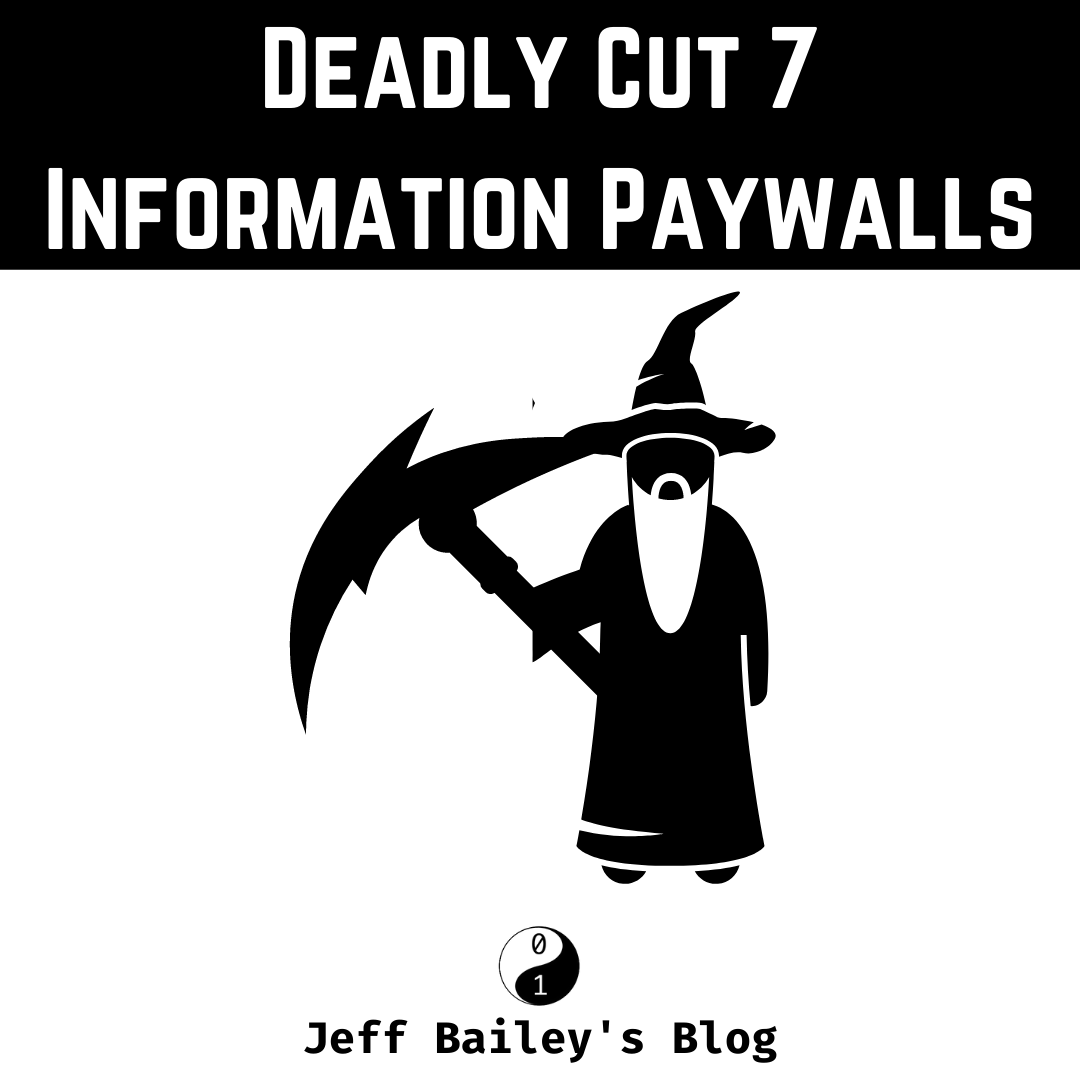Hello, this article is part of my Death by 1000 Cuts series that shines shine a light on glaring software development industry problems. I'm confident you'll find 1000 articles someday.
Information paywalls are an unsustainable business practice and a detriment to society. Let’s take Medium, for example. It’s a blogging platform that forces users to pay for content they have held hostage. How is this helpful for the average human being? It’s not, but thanks to people that buy into their Ponzi scheme, we are subjected to this bullshit. Medium has convinced people they are a necessary middleman, and your blog won’t fly without them. It’s horseshit, and they know it.
The Internet’s Own Boy
Did you hear about a brilliant young man who died fighting against information paywalls? In The Internet’s Own Boy, they tell a tragic tale about Aaron Schwarz, who took his own life in 2013. Why did he take his own life? The American justice system made an example by threatening him with thirty-five years in prison for downloading files illegally.
Aaron’s lawyers did not accept a six-year federal prison sentence before Aaron hung himself. I don’t know what was going through Aaron’s mind when he took his own life, but it doesn’t matter. Aaron brought down an unjust paywall, and he paid the ultimate price for bringing it down.
In 2015 JSTOR made 86 million dollars digitizing back issues of academic journals. JSOR is the repository of data that Aaron accessed, which he believed should not live behind a paywall. I don’t think they should either; why wasn’t this an open-source project? It should have been, and Aaron might be alive today.
Restricted News
I used to read Reuters, but alas, no more. I can’t justify paying for news articles when news is plentiful. I sympathize with real journalists that need to make a living, but this is not the way. If a news organization can guarantee they aren’t publishing fake news, I’ll gladly pay for that. Until then, I’m not paying to access news articles.

The restricted news paywall is a severe problem. People that can’t afford rent aren’t paying a monthly fee for news. These people are now less informed because news organizations have yet to find a business model that makes sense. News media organizations joined in a race to the bottom when Internet blogs started competing with them. Now they’ve made their bed and think locking down their content is the right approach.
A suitable business model for news organizations includes making dependable and verifiable content. It has done data analysis I would otherwise do to get to the truth. It contains no sensationalist content until a news organization provides that I’m not paying a single red cent for news behind a paywall.
Data Depreciation
Data loses value over time. Otherwise known as data decay, data depreciation is a great reason to avoid capitalizing on it. Sure, you’ll get a shot in the arm by holding data hostage, but you’ll never realize the maximum value of the data by locking it down. Open data makes the world go round, and it’s a path to create business partnerships. People appreciate it when you open up the collected data and help them solve problems.
Solutions
Feeding the paywall beasts won’t fix the information paywall problem. Here are ways we can contribute to a world free of information paywalls.
- Don’t pay for information behind a paywall.
- Create open source versions of paywalled content.
- Solicit news organizations that don’t paywall their content but provide you with high-value content.
- Support services like Unpaywall, Open Access Button, and Kopernio.
Don’t get me wrong. People should get paid for creating content, but companies shouldn’t charge for the content they didn’t make. JSTOR didn’t create academic journals; they capitalized on them. News organizations didn’t create the news; they wrote about it. They should get paid, but I don’t think they should charge a monthly fee for it and lock down the truth in the process. I don’t believe publicly accessible information should live behind a paywall in the form of APIs, documents, or anything else.
There are many layers of problems rolled up under the information paywall umbrella. My solutions won’t apply to all these problems, but they will help starve the beast. Businesses will adapt to new markets where people don’t allow paywalls to flourish. Please consider the implications of supporting companies like Medium and the like.
